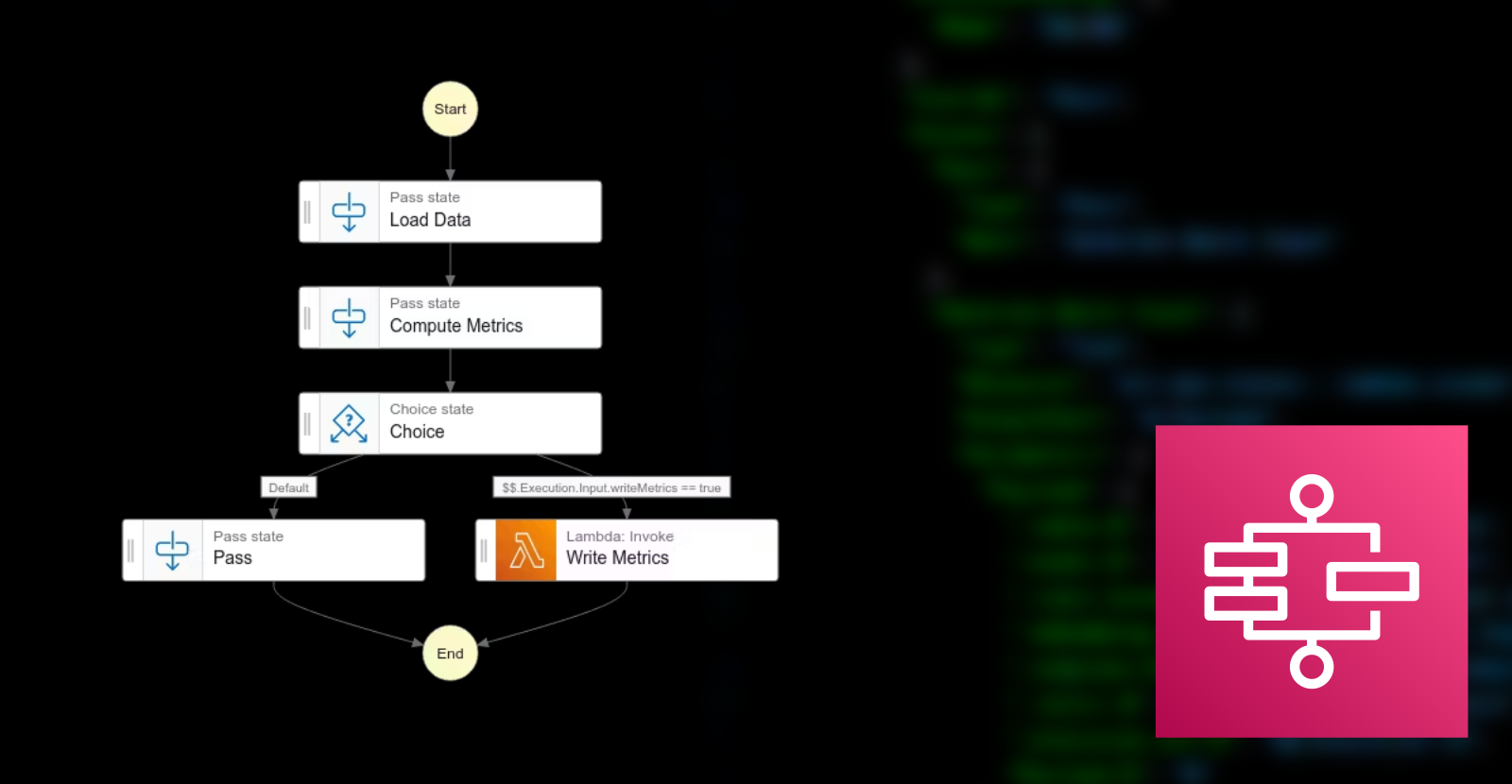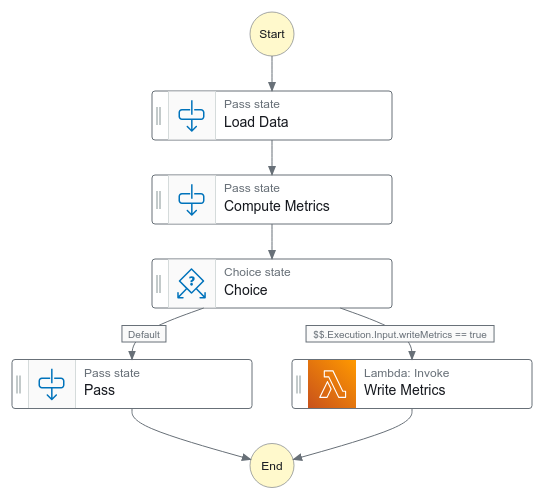Creating global parameters in AWS Step Functions state machines
 Kilian Kluge
Kilian Kluge
When working with AWS Step Functions, it's sometimes useful to have access to variable values that you can set when launching a state machine execution, are available to all states, but are not part of the JSON data that is passed between states.
Some common use cases I've encountered:
Specifying an input parameter that is only relevant for some
Taskstates in the state machine, such as a table or bucket name, an ARN, or a URL.Controlling the state machine's flow through a global flag processed by
Choicestates. For example, enabling and disabling branches, or controlling whether an intermediate output is persisted.
Creating such a global variable value is possible with the context object that allows you to access the input of the state machine in each state definition. While straightforward to implement, it's not obvious from the documentation.
So here's a complete example for creating a global parameter in an AWS Step Functions state machine.
Let's say we have a state machine that processes a batch of data, calculates some metrics, and finally writes the results to a database table:

(You can find the full example state machine definition in this Gist.)
The input to the state machine looks as follows:
{
"items": ["id1", "id2", "id3"],
"writeMetrics": true,
"tableName": "name of the table to write to"
}
In our example, the first two states exclusively deal with the data items. The writeMetrics flag and tableName only become relevant when writing the computed metrics to the database.
Passing writeMetrics and tableName through several (potentially nested) processing steps is not only cumbersome, but leaks implementation details of the state machine into the intermediate states. (Since November 2024, it’s possible to assign values to variables, which partially mitigates this problem and can be a viable alternative to the approach suggested in this article. However, it requires the first step to assign any input value required later to a variable, which still mixes concerns. This mapping has to be updated every time the name of an input parameter changes.)
Instead, we can access the boolean flag and table name through the Execution.Input key of the context object.
The Choice state can use context object keys as the variable within choice rules:
"Choice": {
"Type": "Choice",
"Choices": [
{
"Variable": "$$.Execution.Input.writeMetrics",
"BooleanEquals": true,
"Next": "Write Metrics"
}
],
"Default": "Pass"
}
In a Task state definition, we can refer to the context object in the Parameters block:
"Write Metrics": {
"Type": "Task",
"Resource": "arn:aws:states:::lambda:invoke",
"OutputPath": "$.Payload",
"Parameters": {
"FunctionName": "...",
"Payload": {
"_table.$": "$$.Execution.Input.tableName",
"metrics.$": "$.metrics"
}
},
"Retry": [],
"End": true
}
Subscribe to my newsletter
Read articles from Kilian Kluge directly inside your inbox. Subscribe to the newsletter, and don't miss out.
Written by

Kilian Kluge
Kilian Kluge
My journey into software and infrastructure engineering started in a physics research lab, where I discovered the merits of loose coupling and adherence to standards the hard way. I like automated testing, concise documentation, and hunting complex bugs.